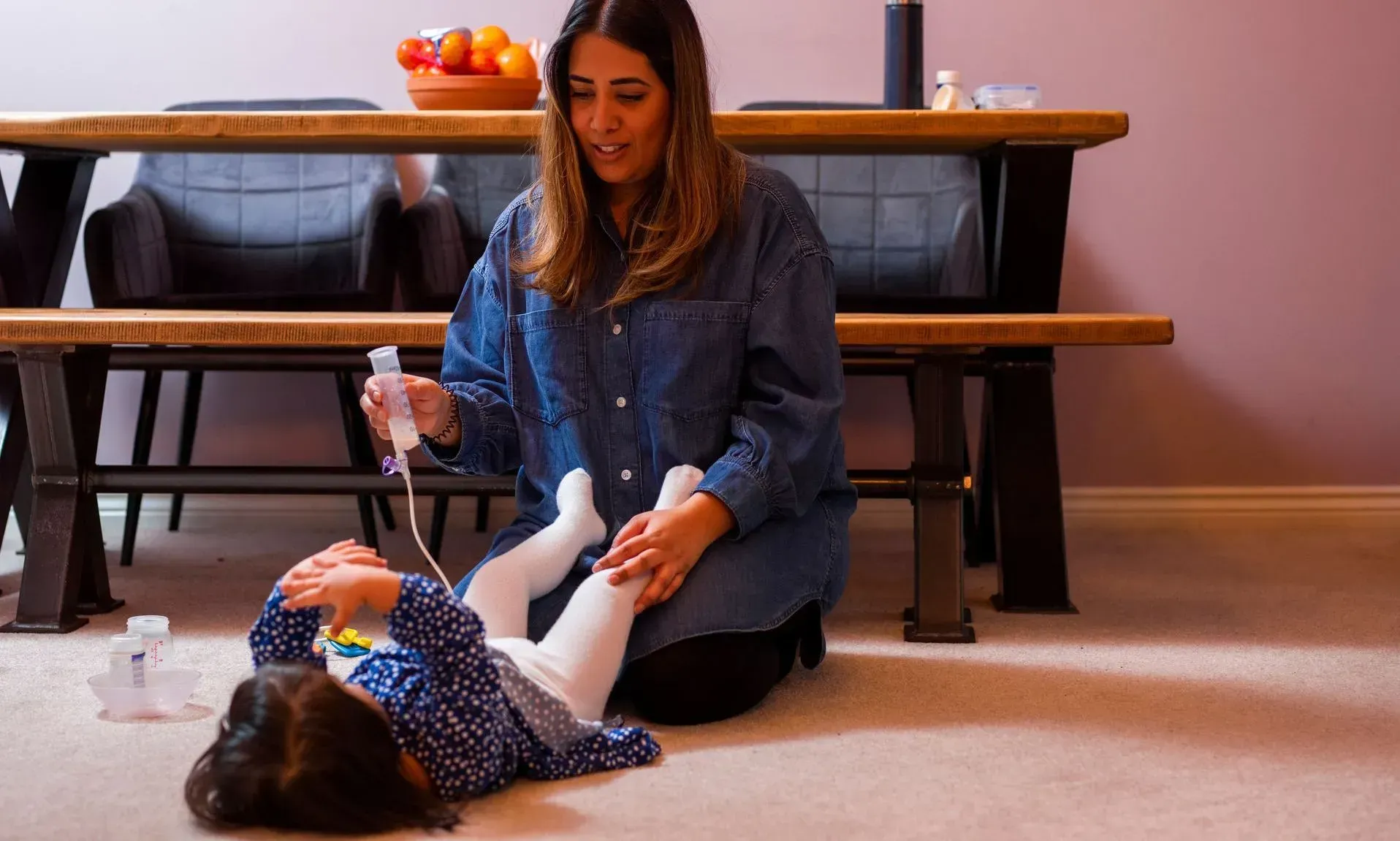Dietetic management of tube fed patients in the community

Tube Feed Awareness Week took place during the first full week in February to increase community awareness and understanding about some of the challenges faced by individuals who tube feed, their carers and their families.
Tube feeding may be required by babies, children or adults for a variety of reasons. It helps to ensure the person is meeting their nutritional needs via a tube which feeds directly into the stomach or small intestine. These substitutions typically include formula, fluids or medicine and are effective even if the patient is unable to eat or drink orally, or when feeding by mouth is not providing an adequate amount of nutrients to the patient.
Tube feeding and the role of the dietitian
The fundamental role of a dietitian is to help people with their nutritional needs. For tube-fed patients these needs are slightly more complex, which means a dietitian’s role is broadened to include considering how the patient will reach nutritional adequacy through means other than oral feeding.
In addition to creating a diet plan, dietitians have an incredibly important role when working with people who are tube feeding to:
- educate and support the patient
- guide the patient to determine the best course of action to achieve optimal health outcomes
- identify any risks that may arise with regard to the tube site or the tube itself.
Dietitians also play a huge part in providing a person who tube feeds with psychosocial supports, including the ability to a live independently within their community, without the need to visit a hospital for treatment.
How the NDIS can support tube feeding
The NDIS is underpinned by the objective of helping people with disability to achieve or continue independent living. To this end the NDIS makes a significant contribution to helping bridge the gap between hospital care and home care for individuals with feeding tubes, as well as supporting carers and families. Through the NDIS, people who rely on tube feeding are able to access personalised, on-call home visits from experienced Dietitians who service their local community.
In the past, home enteral nutrition feeding was largely attached to public hospitals, so even patients under private care were being referred by their doctors to their colleagues in the public system. When tube feeding was added to the NDIS some years ago it not only helped to ease congestion in the public health system, but it also enabled people who tube feed to continue living their regular lives without the need to visit hospital or break their daily routine. It is therefore advantageous for tube feeding patients to seek at-home care through the NDIS to ensure they are seen to in a timely manner, in the comfort of their own home.
Caring for a tube-fed patient begins with a solid understanding of the person’s home life and a plan to maintain it, with the overarching goal being the patient’s independence and wellbeing. Often, it is the Dietitian who will imitate advocating for their client and suggesting tube feed placement when food or fluid needs cannot be met orally.
Dietitians who help people in their homes have an enhanced skill set which breaks down barriers between their clients and medical professionals. An emphasis is placed on emotional, social and spiritual support of the person using a feeding tube, and technical language and medical abbreviations often used in clinical environments are done away with.
Well-trained dietitians also possess the ability to manage time well and will be able to work with their patient’s allocated NDIS hours to ensure the most appropriate care plan is developed, including transitioning from hospital to home care if required. As part of the planning, and in line with the NDIS aim of enabling people with disability to be independent, dietitians can work with tube-fed patients to ensure their own desires are met.
Tube fed patients who have traditionally been treated in hospital may be used to full service care and may be reluctant to give up this convenience, however dietitians working in the community will continue to work in tandem with surgeons and nurses who have a deep understanding of feeding tubes and sites. Additionally, community Dietitians can work with other providers such as hospital Dietitians, equipment providers and formula company representatives to ensure the best care is provided with a holistic approach.
Just one of the wonderful ways our helpz Dietitians are supporting our participants achieve our goals. If you have any questions or would like to get in touch with any of our Dietitians please contact us.
News & Insights
Check Our Latest Resources







